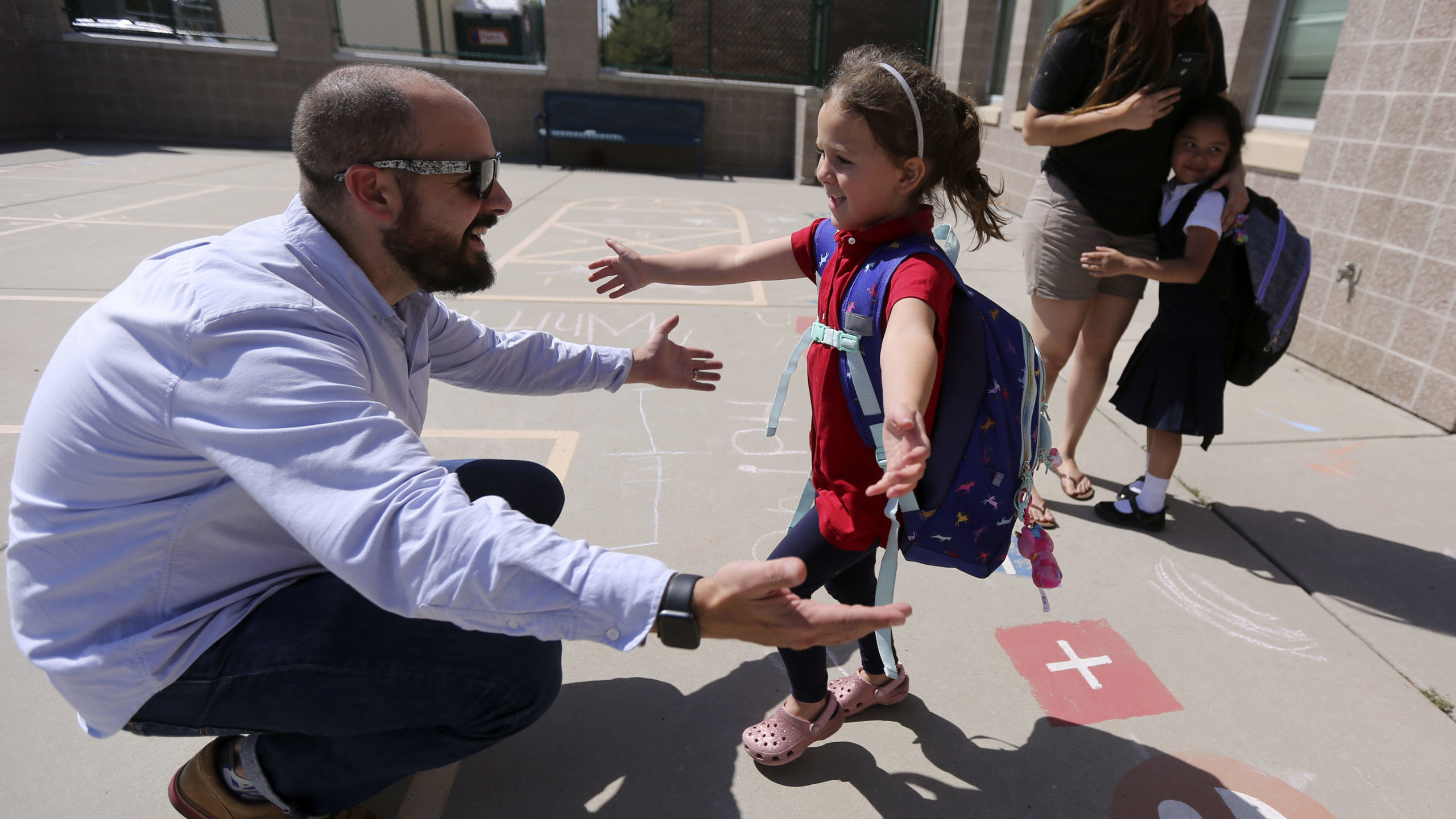Working Utah parents say flexible hours more important than wages
Sep 9, 2022, 8:00 AM

Chris Conard picks up his daughter Hazel Conard from kindergarten at Whittier Elementary School in Salt Lake City before dropping her off at Makiko’s Daycare Center in Murray on Thursday, Sept. 5, 2019. (Kristin Murphy/Deseret News)
(Kristin Murphy/Deseret News)
SALT LAKE CITY — A statewide survey of working Utah parents with children under 12 found 70% would work more than they currently do if their employers offered more flexible work hours.
Just over two-thirds (67%) said they would work more than they currently do if their employers offered a remote/hybrid work option. But 57% of parents would work more if the employer paid more so they could afford childcare.
Finally, 43% of parents would work more if they could find high-quality, affordable childcare.*
The Work/Life Balance Preferences survey was conducted by the Kem C. Gardner Policy Institute at the University of Utah.
Author of study joins the discussion about work
Samantha Bell, senior research associate with the Kem C. Gardner Policy Institute at the University of Utah and author of the study, shared more about the survey findings with KSL NewsRadio’s Debbie Dujanovic and Dave Noriega.
Bell said the survey found that different options were more important depending on the parents’ wages or salary.
“Something that we found were that the lower end of the income, different things were more important than for the general-survey population. So a lot of the childcare-related support options were more important for that group relative to the group overall,” she said.
The pandemic of change
“Did the pandemic change our way of thinking as employees?” Debbie asked.
Bell explained that the pandemic redefined the ways Americans work, changed what the workplace looks like and gave workers new options.
“There were a lot of jobs where people gave remote work a try or a flexible-work schedule a try and found out that was a possibility, and they didn’t know that before,” Bell said. “What the results here show is that there are a lot of employees that really value these options and can make a workplace very attractive if you have these types of supports.”
Hey, boss, are you hearing this?
“Was there any indication that employers are hearing this, that they’re listening to what the employees are asking for?” Dave asked.
“I have just been encouraged since the report was released. I’ve heard a lot of people say, ‘Oh, gosh, I’ve been hearing about these conversations taking place from the employer perspective, and this is great to hear it from the employee perspective. So it’s encouraging to think that this is actually already things that employers were talking about and grappling with,” Bell said.
She added that flexibility of working hours means different things to different people.
“It might just mean not having things due during the hours where it’s pickup and drop-off time [for childcare] or it might mean something more like four-10 hour days.”
———————————————————————————————————————————————————
*Survey responses from households with at least one adult who is not working full-time
Dave & Dujanovic can be heard weekdays from 9 a.m. to noon. on KSL NewsRadio. Users can find the show on the KSL NewsRadio website and app, as well as Apple Podcasts and Google Play.
Related reading:
- Microsoft tried a 4-day workweek in Japan. Productivity jumped 40%
- Are Utah parents satisfied with their work and child care balance?













